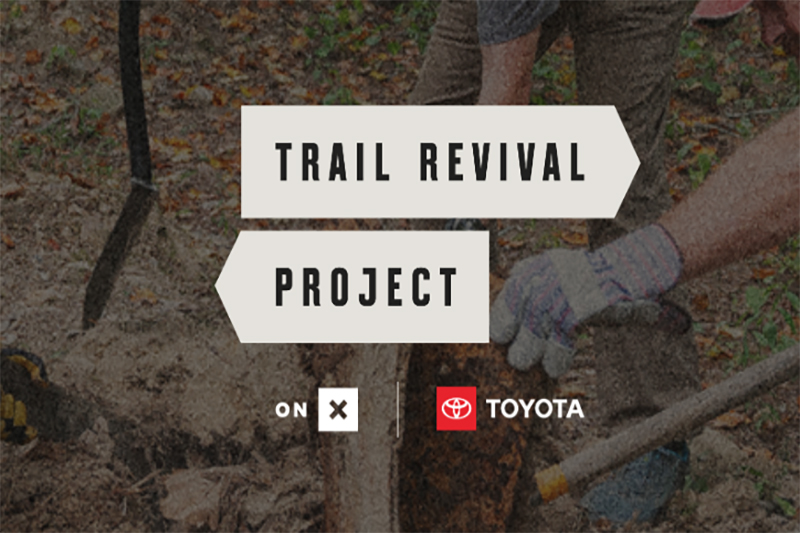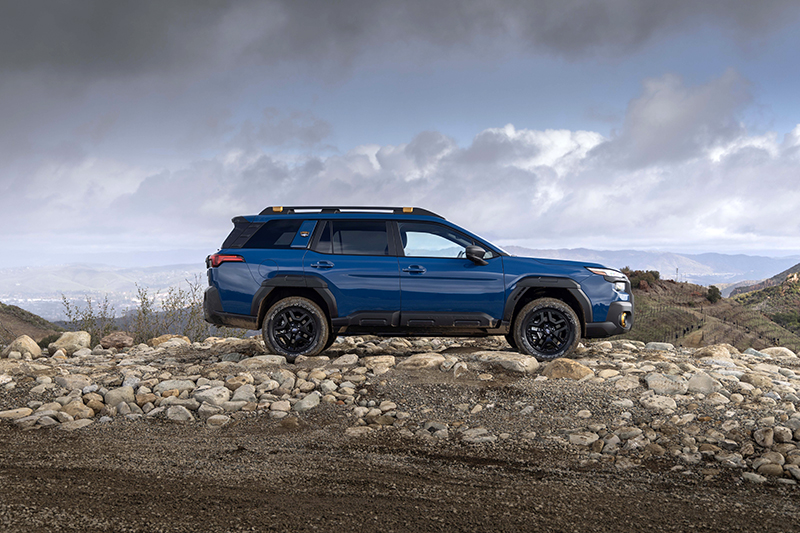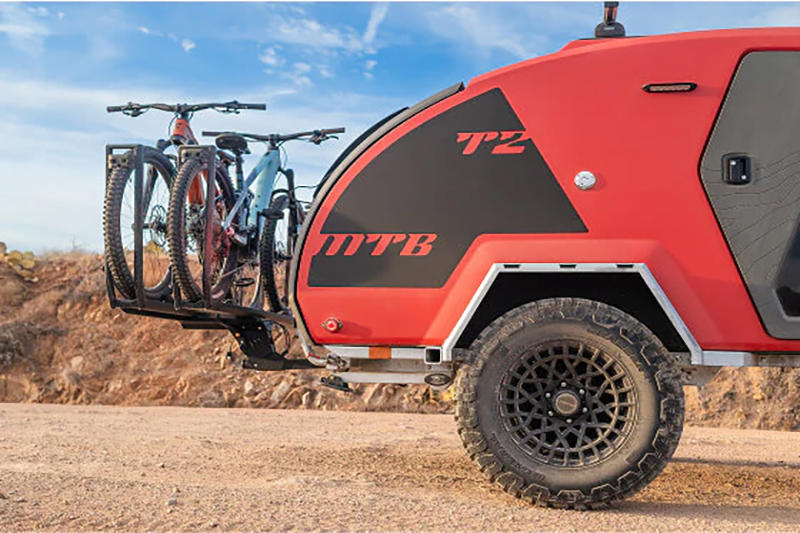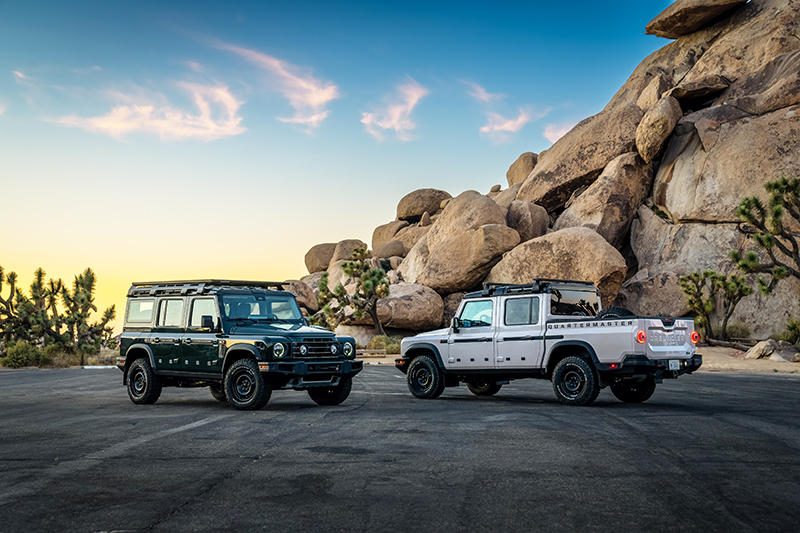Overland Challenge Series Begins this Spring
March 24, 2016
Overland Challenge Series
Campfire Dreams
Some great ideas have been developed in the meeting room, sitting with a group of well-groomed and sharply dressed colleagues around a paper cluttered table; safe, sterile, and often without personal risk. Other ideas are formed days into an amazing adventure while sitting around the campfire and reminiscing about the adventures we’ve had and all want to have. Often these adventures are out of our reach; requiring time and finances that many of us lack. The Overland Challenge Series was designed to be the adventure of a lifetime and remain feasible for the average Joe. That was our intention going in, and it remains a fundamental idea moving forward.
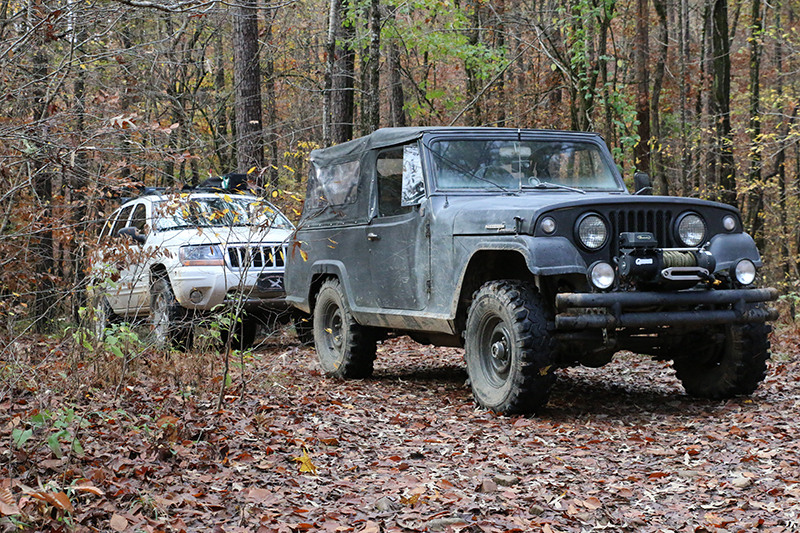
For me, that one un-achievable adventure would be the Camel Trophy. It’s hard to say it hasn’t been a big influence in the layout of the Overland Challenge, as you’ll see and experience throughout the event. The event officially started in the spring of 2014 and has been offered in an ever-evolving role since. The first event was time based, similar to a road rally. Time was logged via time-stamped photography and the route was pre-run in the most efficient manner; paying attention to speed limits, to determine base timing. Following that, we moved to our current format: 100% mileage based, with incentives for tackling the most difficult of trails and challenges. The event takes place on a Thursday to Sunday schedule, requiring teams start around mid-day on Thursday and finish before mid-day on Sunday. The event operates as follows: Teams meet at a designated starting point where the odometer reading is recorded for all team vehicles. Teams are given a handout with the checkpoints listed. Typically, there are 15 checkpoints. Five of the 15 are required for all teams. The remaining 10 are broken into difficulty levels. In 2015, the event had 3 easy, 3 medium, 3 hard and one extreme checkpoint. The incentives for these checkpoints are a deduction in the ending mileage. For example, if your team ran the event in 150 miles and racked up a 10% deduction through the checkpoints and challenges, your final score would be 135 miles (10% of 150 is 15, 150-15=135 miles). In the fall of 2015 we added a set of Challenge Tasks. These included a balance beam, winching and bridging tasks, an obstacle course, and a driving course. For 2016, we’ve made a few small changes and added a grand finale for the final day. Stay tuned for more on that – we’d like to keep it a surprise!
Treacherous Conditions
Overland in Arkansas
The Overland Challenge Series is currently based in Arkansas and looking to expand beyond the Natural State as time allows. Typically we operate on a bi-annual schedule with one event in the spring and one in the fall. Historically, the spring event has been the more difficult of the two. The average did-not-finish rate over the past four events has been 20% due to equipment failure and 5% due to failure to meet requirements. It’s truly a challenge, both technically and mentally.
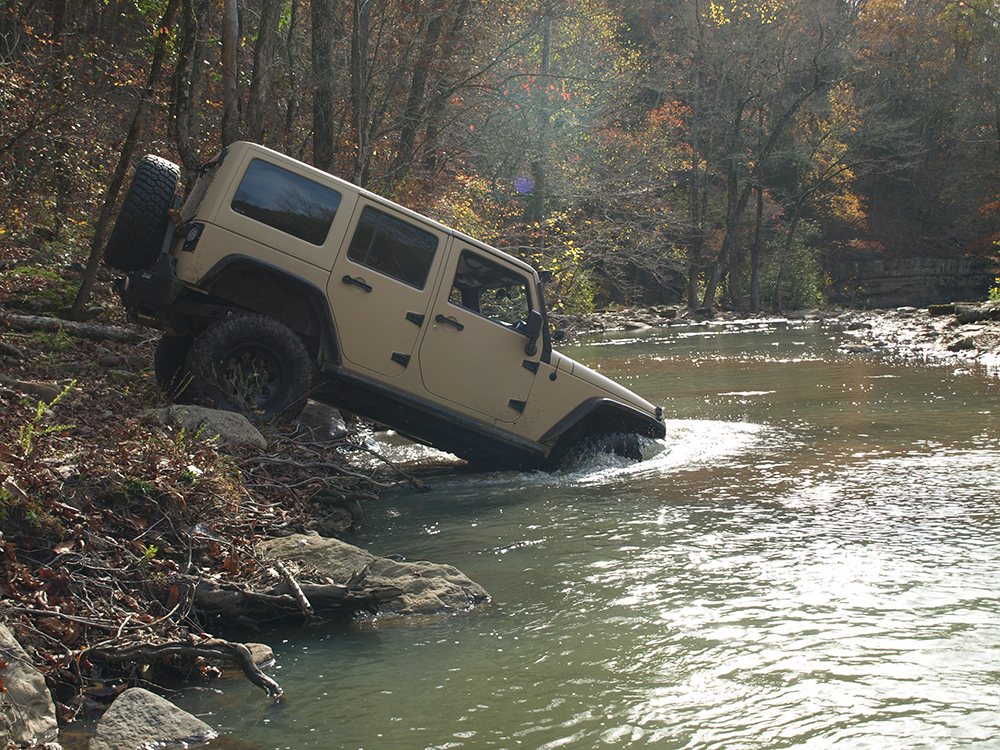
We have a very relaxed policy for vehicle entry because the event is aimed at such a variety of experience levels and age groups. A team is welcome to complete the event on improved gravel roads, focusing on the easiest of checkpoints. It would be difficult to win the competition in that sense, but we welcome everyone to try! We strongly encourage teams to have extended breathers and a locking rear differential, but it is in no way a requirement. We pre-run all the checkpoints with a volunteer vehicle that is every bit as factory-built with regard to suspension and drivetrain so we know that, given the time and effort, a vehicle’s capability is not the deciding factor as to winning and losing.
The event covers many low-water crossings throughout the Ozarks and it is not uncommon to see water fording depths of 36”+ if the weather has been good. This is by no means a deal breaker for those unwilling to tackle this type of terrain, as all mandatory and most optional checkpoints can be reached without touching a primitive or low-water crossing.
Some breakages we see range from the very common JK track bar failure (3) to the not-so-common Land Cruiser CV Axle breakage (1). Universal joints, clutches, oil-pumps, tires, driveshafts, leaf springs, starters and even power steering pumps have been known to fail in the wild.
The Ozarks
Historically, the Ozarks is a rural area. You’ll run into people who have the same surname you’ll find on a headstone from pre-Civil War years, and you’ll find headstones engraved with “Confederate States of America.” We’ve found homesteads, churches, and school houses that were established before Arkansas was made a state. A staple checkpoint is the Oark General Store, established in 1890 and recently recognized as the oldest continually operating general store in the state. We recommend getting a burger and trying some coconut cream pie (or any pie for that matter).
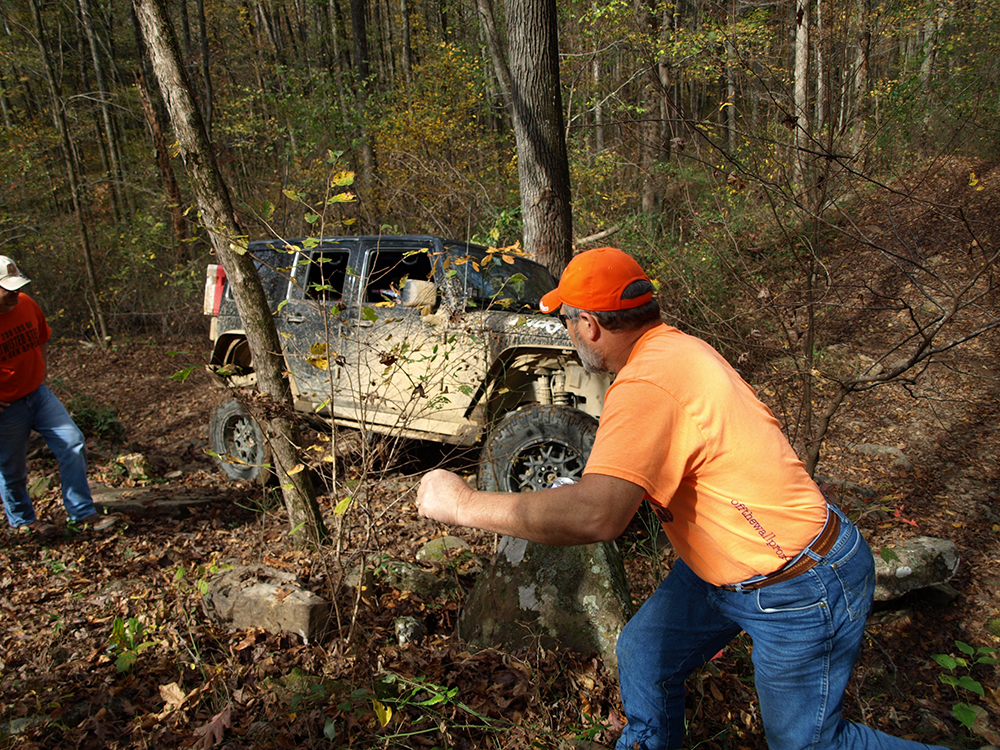
The Ozark National Forest is a great place to play and has some of best views you’ll find within a day’s drive. While you won’t see massive elevation change, snowcapped mountains, or sweeping vistas, the Ozarks will provide its own beauty. We’ve heard it referred to as the ‘miniature smoky mountains’. There are many similarities; rich fall foliage, beautiful spring blooms, and creeks galore. You won’t see the tourists, either, which is always a great trait when in the backcountry.
We’re often asked if we have issues with hillbillies and banjos. We would describe the Ozarks as rich with historical and cultural significance and poor on hillbillies. We are firm believers in common sense, and given our generally guarded outlook on life and safety, we’ve had zero issues in the area. Sure, we’ve had the 3am ATV visits and have met a few farmers who don’t understand the idea of easements or land use. All of these situations have been handled without trouble. Relax and enjoy the adventure, the hillbillies are the least of your worries. Though, we’ve seriously heard banjos when camped on the Big Piney.
Competing
Competitors come from all over the United States. We see teams from as far away as Idaho and Florida as well as teams that may just step out their back doors to be at the starting line. Some are repeat offenders and others are total novices to the competition or the hobby. The only incentive to winning? Home-made trophies and bragging rights. We award 1st, 2nd and 3rd place with trophies as well as a “comradery award” for the team that goes above and beyond to help others throughout the course of the event. New for 2016 we will be awarding a “hard luck” trophy as well.
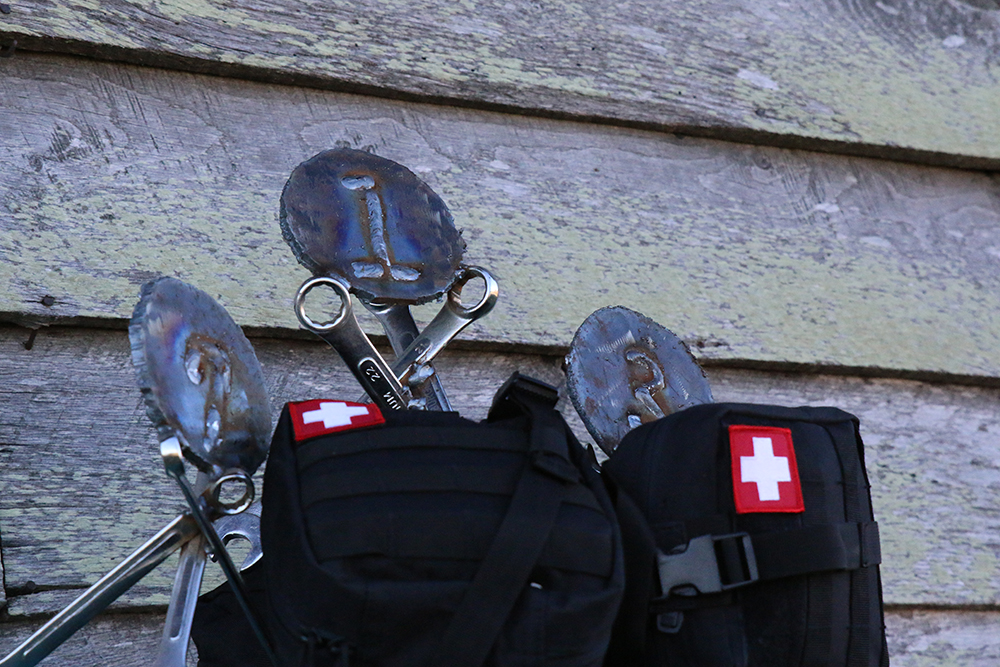
You’ll find that the terrain isn’t the biggest obstacle. Route selection, mileage estimates, and time are all factors to be considered for a team to place well. Add the challenge tasks into the mix, which require a special blend of primitive skills and vehicle knowledge to overcome. It’s more than a weekend in the woods—it’s an experience that will push your comfort zone and test your grit.
Competitor Randy Putt, a repeat competitor, recalls his experience:
| Our team, The Ozark Navigators, have competed in three previous challenges and helped in another. The team won the first event and placed third during the Fall 2015 event. We were disqualified from the Spring 2015 event for assuming it would be structured like the first event and not fully reading the instructions provided, which stinks because we would have made second place! It has been a roller coaster experience for us and given our local knowledge, with team members Brad Brazell, James Crow, Rick England, and Ron Ansley throughout the events, we have always aimed for first place. The event is excellent in that it allows the novice competitor equal chance of winning as the most experienced. Logistically, it is definitely a challenge! The sheer volume of roads available to route along the event make every decision critical to success. Some of these roads are marked on a map but appear to have been last used by a horse and buggy. It’s not uncommon to find trails so overgrown that it would be difficult to walk down, let alone move a vehicle along! Another side effect of the formatting is that you can go the entire challenge only seeing another team or two, and that leads to worry about your routing and you won’t know until the finish line how you’ve done. Luckily for us, it’s always been on the better end. Our team was a bit nervous about the challenge tasks going into the Fall 2015 event. They were fantastic! Nothing overly technical for any of the competitors, and just difficult enough to make it a challenge. Our biggest recommendation to competitors is to ask questions at the captain’s meeting, don’t get discouraged about not seeing another team, and finally – you’re out there to have fun so enjoy it. We’ve had leaf spring (trailer) and track bar (JKU) breakages along trail and sourcing a repair has always added to the adventure. We would recommend this to anyone as a great, family-safe adventure to add to the bucket list. Unfortunately, our team hasn’t been selected for the Spring 2016 event, but we will sign up for the fall event in an instant! |
Volunteering
Another way to be involved with the Overland Challenge Series is to volunteer. We have requests to help with event year-round and from all over the country. The event structure is fairly complex, given the variety of experiences we strive to offer our competitors and without our volunteers it would be a disaster. It helps that most of them are even more addicted to the “OutdoorX4” attitude than they would care to admit.
| My experience as a volunteer for the Overland Challenge Series has been phenomenal. Being a volunteer for this organization has been a huge learning experience, and I’ve been able to help out many competitors or just have a chat with them at events. Stepping in as a volunteer was pretty intimidating at first, considering the fact that I’m seventeen and every other volunteer is older than me. Throughout my time as a volunteer, however, I’ve been able to become friends with the other volunteers, and even a few competitors here and there. Working with this organization as a volunteer is a ton of fun, especially during events. The volunteers have to keep track of all of the teams at the event and make sure they get to certain checkpoints at certain times. Usually, we’ll split up into small groups and spread out to each checkpoint and hang out there until a few teams come by. We make sure that they’re enjoying the event, and are following the rules and don’t need anything. It’s a fun experience as a volunteer to drive down trails and spot a team every now and then because we’ll usually have a quick chat and then be on our way. Being a volunteer for the Overland Challenge Series has taught me countless things about vehicles and outdoor living. I’ve learned how to properly practice Tread Lightly and Leave No Trace principles and learn what overlanding truly is! Being a volunteer for the Overland Challenge Series allows me to interact positively with nature, and I’m able to promote responsible overland travel and share great trails and campgrounds with many other off road enthusiasts. I have been able to further my knowledge about the forests of Arkansas and how to travel and camp responsibly, and how to do things in the outdoors in the most environmentally friendly manner. My volunteering experience with this organization has been nothing but successful, and I’ve been able to learn so many things about my vehicle and the forests, all while helping the participants have an experience of a lifetime. My experience as a volunteer has also formed me into a better driver, both on and off road. I’ve been able to take my vehicle to its limits, all while safely learning about off road driving as I go. Being a volunteer for anything is always a good experience, but for me, being a volunteer with the Overland Challenge Series is the experience that changed my life forever, and I’m stoked to continue with this awesome organization. |
How to get involved:
The event is offered on a bi-annual basis and registration for the Spring 2016 event is closed. The Fall 2016 information will be provided following the Spring event, including all costs and requirements. Registration will most likely open around June.
You can find more information at overlandchallengeseries.com, on our Facebook or Instagram pages, or by emailing us directly at jayston@overlandchallengeseries.com.
* OutdoorX4 Magazine – Promoting responsible 4×4 adventure travel and outdoor recreation


